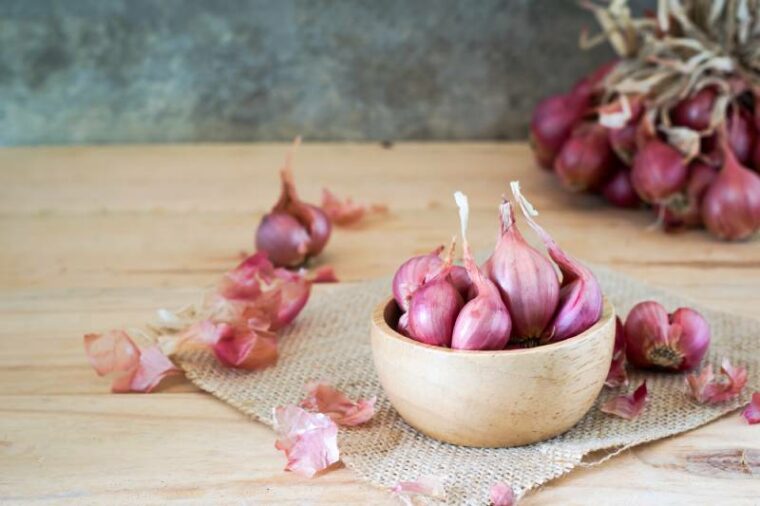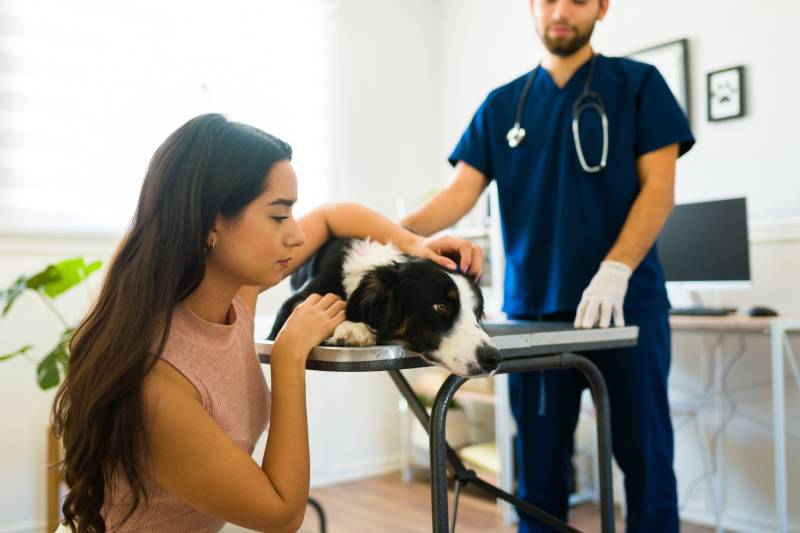
Shallots are a delicious addition to many meals, thanks to their delicate onion flavor that makes them perfect for everything from salads to sauteing. If you’re a fan of shallots, then they probably find their way into your food quite often. If you also share bites of your food with your dog, then you may be wondering if shallots are safe for your dog. Unfortunately, they are toxic to dogs. Here’s what you need to know.
Are Shallots Safe for Dogs?

Shallots belong to the Allium family, which also contains other common kitchen ingredients, like onions, garlic, and chives. All plants in the Allium family are considered toxic to dogs. If your large dog happens to get a small piece or two of a shallot, there is likely no cause for concern. However, if your dog is very small or consumes most or all of a shallot, or if they consume shallots regularly, then you should be concerned.
Why Are Shallots Unsafe for Dogs?
All types of Alliums cause the same problems for dogs. Alliums, including shallots, contain N-propyl disulfide and other sulfur compounds, which leads to hemolysis of red blood cells. What this means is that this compound, when consumed, can cause your dog’s red blood cells to break down and rupture, leading to anemia or deficiency of red blood cells. Red blood cells are necessary for moving oxygen throughout your dog’s body, and without red blood cells, your dog goes into a state of shock or “hypoxia”. Hypoxia means a deficiency of oxygen in the blood which in this case is due to lack of red cells to carry the oxygen.
The more toxic sulfur compounds that your dog has consumed relative to their body size, the more red blood cell damage is likely to be done. This means that smaller dogs and dogs that have eaten larger amounts do have a higher risk of clinical toxicity. . The more red blood cells that are destroyed, the more clinical signs are seen in your dog.
A dog with too few red blood cells will begin to lose circulation to their extremities, as the body will focus on maintaining the function of essential organs, like the heart and brain. As cells continue to be destroyed, your dog’s body will no longer be able to provide enough oxygen to even the essential organs.
In severe cases left without treatment, hemolysis and hypoxia will lead to death. Even if your dog does not experience significant oxygen loss to their heart and brain, they can experience a lack of oxygen in many other important organs, which can cause permanent organ damage. This can impact all organs in your dog’s body, including the kidneys, liver, pancreas, and digestive organs.
What Should I Do if My Dog Eats a Shallot?

If your dog consumed shallots, call your veterinarian or Animal Poison Control to get an idea whether your dog is at risk for clinical signs of toxicity. Make sure you have an idea of your dog’s current weight when you call, as well as an idea of how much shallot they ate.
Don’t attempt to make your dog vomit at home without veterinary guidance. There is a lot of misinformation about initiating vomiting at home that can be harmful to your dog.
In Conclusion
All foods in the Allium family are toxic to dogs, including shallots. Cooking shallots doesn’t make them any safer for your dog, either. If your large dog eats a very small piece of shallot, then there likely isn’t cause for concern. However, if your dog eats multiple pieces or an entire shallot or they are very small, then you should contact a vet. Shallots can lead to red blood cell death and even deficiency of oxygen throughout the body.
See Also:
- Can Dogs Eat Turkey Bacon? Vet Approved Facts & FAQ
- Can Dogs Eat Butternut Squash? Vet-Verified Feeding Facts & FAQ
Featured Image Credit: tumsubin, Shutterstock







